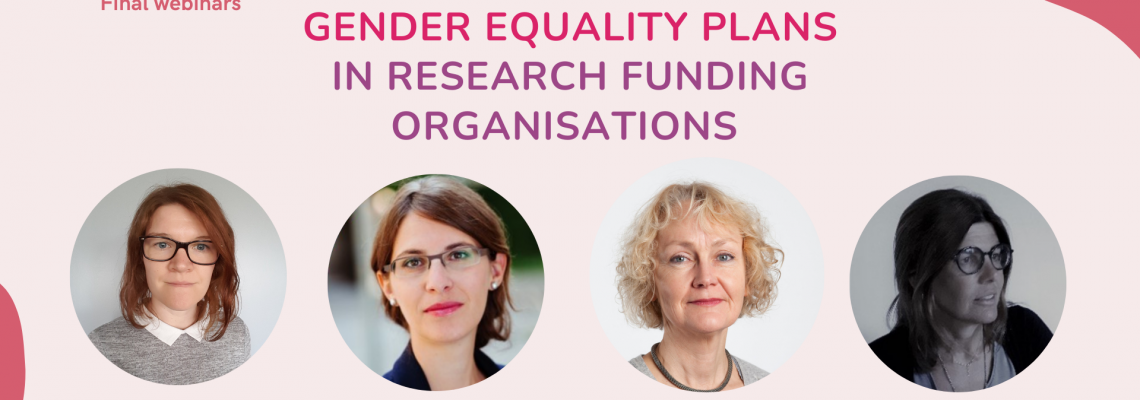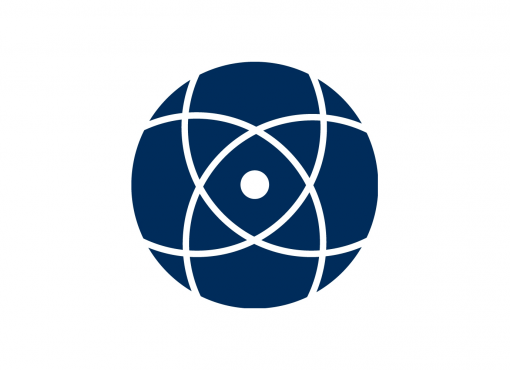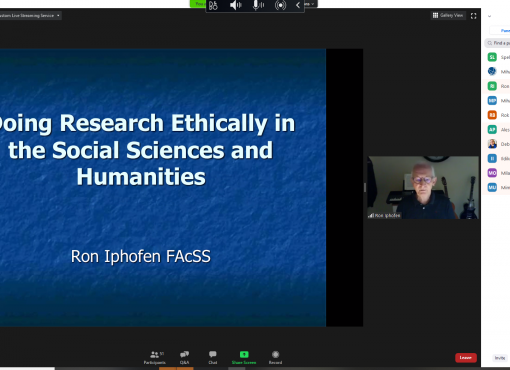
The challenges of developing gender equality plans in research funding organisations
Research Funding Organisations (RFOs) play an increasing role in research systems by orientating research investments and inducing change in the way research organisations work. Halfway between research organisations and policymakers, RFOs also influence change in national research policies.
Due to this peculiar position, they could also play a pivotal role in promoting gender equality in R&I, using research grants as a tool to help research organisations embed the gender dimension in research contents, favour women scientists in their career development, and support their access to leadership positions. However, like any other organisation, RFOs also reproduce forms of gender inequality themselves. It is thus very unlikely that they succeed in fighting gender inequality in the research system if they don’t address this issue internally as well.
Hence the importance of encouraging RFOs to develop and improve Gender Equality Plans. This leads to various understudied questions, such as how to tailor the GEP-based approach to the RFOs’ peculiar features, how to develop reliable tools to measure gender dynamics in RFOs, or how to better connect RFO’s internal and external activities supporting gender equality.
This webinar will discuss the challenges in developing Gender Equality Plans and showcase best practices in this field.
Speakers
Dr. Emer Cahill is the Programme and Communications Manager in the Irish Research Council, with responsibility for Equality, Diversity, and Inclusion. She has a background in Immunology and has spent the past 6 years working for two of Irelands predominant research funding organisations, where she has pushed through policy on bullying and harassment in research and initiatives to address gender bias in research assessment. She is also a member of several community of practices on gender and EDI nationally and internationally. She is also involved in the GENDER-NET Plus. GENDER-NET Plus ERA-NET Cofund was launched in 2017 and runs until 2022. The consortium of 16 committed organisations from 13 countries aims to strengthen transnational collaborations between research program owners and managers, and to provide support to the promotion of gender equality through institutional Change. project.
Lise Christensen is a Sociologist (Mag.Art.) at the Research Council of Norway (RCN) where she leads the process of developing and implementing the RCN Policy on gender balance and gender perspectives in research and innovation. Gender balance and gender perspectives (forskningsradet.no) RCN is aligning their national GEP requirements with the ones required in Horizon Europe for 2022, and should be to expanding them to enterprises in 2023. Next to this she is Coordinator of RCN initiatives and advice promoting gender equality in the research sector. Lise has previously worked as gender equality adviser at the University of Oslo (1993-2005).
Donia Lasinger, Deputy Managing Director WWTF (Vienna Science and Technology Fund)
Donia Lasinger is deputy managing director of the Vienna Science and Technology Funds (WWTF). She is mainly responsible for the career program “Vienna Research Groups for Young Investigators”, a prestigious grant for young excellent researchers from abroad to give them the opportunity to lead their first own group in Vienna. In addition to her funding activities, she is also involved in studies, evaluations and consulting activities at WWTF GmbH and manages various projects, including the EU-funded GEECCO and Co-Change projects in the field of gender mainstreaming and further RRI topics like open innovation. She studied business sciences in Austria and Ireland and specialized in strategy and innovation management. During and after her doctoral studies she worked as strategy and management consultant on a national and international level. Her main competences include expertise in innovation management, strategic development and research and innovation.
Cristina Borrás Sardà, Agency for Management of University and Research Grants (AGAUR), GRACE implementing partner.
Cristina’s role encompasses institutional strategic driven projects and the development of activities to support research international collaboration and researchers’ careers in the region. She has a proven track record in the development and implementation of a wide range of initiatives on research management and the Agency’s social commitment and alignment with the SDGs. She is currently in charge of the implementing institutional changes on Responsible Research and Innovation (RRI) and performing the Human Resource Strategy for Researchers (HRS4R).
Moderator
Luciano d’Andrea, from Knowledge & Innovation, GRACE expert partner
This event is part of the eight final webinars the GRACE project is holding every Tuesday from 26 October to 14 December, where project partners and external experts share their findings and provide useful knowledge to implement RRI in research performing and funding organisations
For almost three years, GRACE project partners have worked towards implementing fundamental institutional change in 6 research performing and funding organisations. With an intense mutual learning programme and a co-creation environment, six expert partners have supported six other partners in developing a set of specific RRI-orientated Grounding Actions in their organisation, paving the way for further institutional change.

